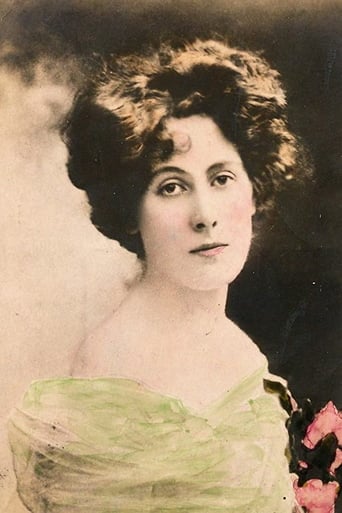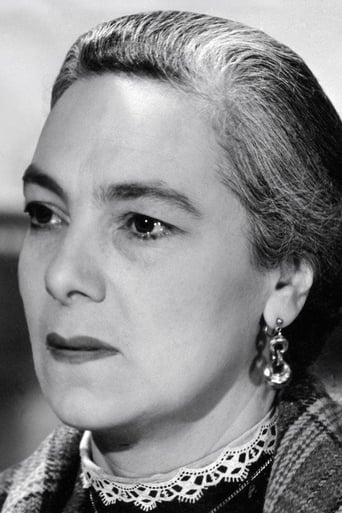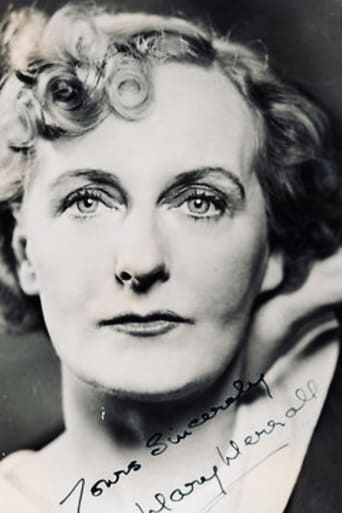Matialth
Good concept, poorly executed.
PiraBit
if their story seems completely bonkers, almost like a feverish work of fiction, you ain't heard nothing yet.
Yash Wade
Close shines in drama with strong language, adult themes.
Sienna-Rose Mclaughlin
The movie really just wants to entertain people.
clanciai
This appears like a black comedy, but it is actually a masked tragedy. The male protagonist, the sickly David Davies, who instantly gets bedridden and stays so as soon as he gets into the weird old house of his three sisters, should have been played by Charles Laughton, as the character is very much in his line. The three sisters are extreme characters all three of them, one deaf, one blind and the third one oversensitive to anything, which is a weird company indeed. Their brother instantly believes they are going to kill him, and they would indeed be motivated.The actual story is, that the derelict small mining town is hit by an earthquake demolishing many houses, and the three sisters as guardian angels and benefactors of the town promise to sponsor their restoration. The problem is they can't afford it, while their brother is a rich industrial baron, so they summon him to help them. He has no intention of doing so and thus leave his three sisters in an awkward position, which they can't accept.He has a secretary, Nova Pilbeam, who is his ony support in the gradually more serious intrigues conducted against him, and she is always lovely to look at. The film peters out in a genetral derailing of the intrigue, and the end is not satisfactory. You would have wished the three weird sisters to go on undisturbed. The main asset and attraction of the film is that parts of the script were written by Dylan Thomas, which makes the dialogue at times extremely relishable.
paxveritas
The sisters are irritated when their successful younger half brother refuses to help them in their philanthropic plans to help the ill-starred community rebuild. They are positively miffed when he later decides to leave his secretary all his assets (including the family house) in his will. Greed and pride in their heritage takes over, philanthropy is set aside, and they begin a program of steady, unsuccessful assaults on their half brother and his secretary, who represent London and modernity.This interesting movie might as well have been titled "Escape from Wales." It is known that the script co-writer, the poet Dylan Thomas, took a dim view of Wales, his homeland, and one can't help but feel that the decrepitude of the sisters, and their fragile old house set in a bleak Welsh town where the mines are defunct, are emblematic of Wales as seen by the author and script writers.Logically, the half brother and secretary want to leave as soon as the danger is palpable, but are thwarted in doing so at every turn. A doctor (recipient of the sisters' philanthropy in the past) zigs in and zags out like a confused, allegiance-less mosquito, for most of the time until the very end.Nova Pilbeam as the secretary has a pleasingly crisp voice and comes across in 1948 as a Katharine Hepburn type, but is a much more natural actress than Hepburn, who usually announced her lines rather artificially instead of just saying them. Pilbeam was very good in Hitchcock's "Young and Innocent," and is better still in this film.For all its melodrama and its interspersed (overly poetic?) political moments, this is an engaging "dark houser" that holds one's interest from the first minute to the last.
drednm
Gothic tale of a dying Welsh mining town and the three old ladies who oversee it. Each old lady is afflicted: one is blind, one deaf, and one arthritic.After the town collapses into the coal mine, the old ladies vow to rebuild the town but don't have the money. So they summon their younger brother (Raymond Lovell) from London to come help them and the town. But as he drives into town with his secretary (Nova Pilbeam), someone throws and rock and hits him in the head. At the decaying mansion of his sisters, a doctor (Anthony Hulme) is summoned.But something else is wrong. The brother seems to be ill, and his secretary tries to get information from the doctor, but he seems oddly distant. As the secretary tries to warn the doctor about the sisters' odd behavior, he bristles and tells of how the old ladies put him through medical school.Stranded in the old mansion, the brother again confronts the sisters about money and finally declares he will change his will rather than leave money to the old ladies to waste on a dying town. This seems odd since they are all about 20 years his senior.Odd things keep happening, but when the lawyer shows up to draw up a new will, things come to a head when the doctor realizes that the secretary may be in danger since she is the new beneficiary.The three old ladies are remarkable and are all noted British character actresses. Nancy Price plays Gertrude, the blind one (she also co-scripted the film); Mary Clare plays Maude, the deaf one; and Mary Merrall plays Isobel, the arthritic one.Co-stars include Marie Ault as the housekeeper, Elwyn Brook-Jones as her son, and Hugh Griffith as the town troublemaker.Nova Pilbeam, best known for her 30s films with Alfred Hitchcock, retired from the screen after the release of this film and THE DEVIL'S PLOT in 1948. She was 29 years old.
thomandybish
This film, whose screenplay was written by poet Dylan Thomas, concerns a lawyer and his young secretary who travel to the Welsh ancestral home of their client to alter his will. Seems the man is the youngest child and only male heir of a once pround family who controlled the local coal mine. The home is presided over by the man's three older sisters, each with a distinctive affliction: one is blind, one is virtually deaf, the other has painful arthritis that has molded her hands into claws. A series of bizarre events begin to occur, particularly to the man and the lawyer's secretary, that ultimately ends in a cataclysmic finale!What we have here is an old set of standards giving way to a new mindset and, to quote the poet himself, the old ways(or sisters)"do not go gentle into that good night"! These three women drift phantom-like through their gloomy mansion, exhibiting the kind of arcane Victorian propriety and claustrophobic narrowness only an isolated life in a wealthy, rarefied setting can bring. Their brother left the house and community to go to school and work, so he doesn't share their outlook. His reappearance, along with that of the free-thinking secretary, challenges the women's way of thinking. The sense of decay shown by the three sisters is heightened by the fact that the mine which has supported them is almost exhausted and, in fact, threatens the town above it by dent of the fact that the tunnels and caverns are dangerously near to collapse. A great sense of gloom and gothic atmosphere prevades the interior shots in the house. Interesting.




